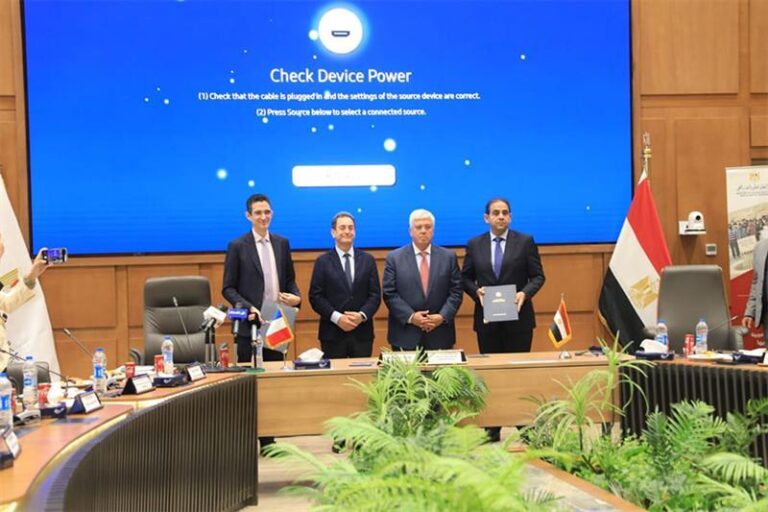Egypt and France have embarked on a new phase of enhanced cooperation in higher education, marking a significant step in strengthening bilateral ties between the two nations. The latest agreement, announced recently, aims to promote academic exchange, research collaboration, and joint innovation projects, reflecting a shared commitment to advancing educational excellence and cultural partnership. This development signals a renewed focus on fostering deeper integration within the fields of science, technology, and humanities, further solidifying Egypt and France’s longstanding relationship in academia.
Egypt France Strengthen Academic Collaboration Through Expansive Partnership Framework
Egypt and France have embarked on a transformative collaboration in higher education, marked by a fresh framework designed to enhance academic exchange and research innovation. This partnership aims to facilitate greater mobility of students and faculty, standardize curricula, and co-develop joint-degree programs, fostering a more interconnected educational ecosystem between the two nations. Key stakeholders from both countries emphasize the importance of shared knowledge in addressing global challenges, with a special focus on technology, sustainable development, and cultural studies.
The newly established cooperation framework encompasses several strategic initiatives, including:
- Exchange scholarships tailored to boost bilateral student enrollment
- Joint research grants aligned with artificial intelligence and renewable energy
- Faculty training workshops emphasizing pedagogical innovation
- Creation of dual certification pathways for enhanced professional recognition
| Focus Area | Target Outcome | Timeline |
|---|---|---|
| Research Collaboration | 35 joint projects initiated | Next 3 years |
| Student Mobility | Increase by 40% | By 2026 |
| Curriculum Development | 5 dual-degree programs | Within 18 months |
Key Initiatives Driving Student Exchange and Joint Research Programs
In a significant move to enhance academic collaboration, new frameworks have been established to promote extensive student exchange programs between Egypt and France. These initiatives focus on creating immersive cross-cultural learning experiences, enabling students from both countries to benefit from diverse educational environments. Key aspects include joint scholarship opportunities, streamlined credit transfers, and intensive language training modules, aimed at fostering adaptability and enriching intercultural dialogue.
Furthermore, joint research programs have been bolstered through strategic partnerships between leading universities and research institutions. Collaborative projects target priority sectors such as renewable energy, biotechnology, and digital innovation, highlighting a mutual commitment to addressing global challenges. The following table outlines core focus areas and associated collaborative activities:
| Focus Area | Key Activities | Expected Outcomes |
|---|---|---|
| Renewable Energy | Joint labs, field projects, expert exchanges | Innovative sustainable solutions & patents |
| Biotechnology | Co-development of medical research, training programs | Enhanced healthcare interventions & publications |
| Digital Innovation | Hackathons, shared digital platforms, start-up incubators | New technologies & entrepreneurial ventures |
Innovative Funding Models to Support Bilateral Higher Education Projects
As Egypt and France embark on a new phase of collaboration in higher education, innovative funding mechanisms are driving this momentum. Among the standout models are joint endowment funds that pool resources from both governments, private sectors, and international donors. These funds are designated to support sustainable academic programs, scholarships, and research initiatives that align with the strategic priorities of both countries. Additionally, creative public-private partnerships (PPPs) are being leveraged to unlock investments beyond traditional funding sources, encouraging local businesses and multinational corporations to participate actively in educational development.
Furthermore, the use of performance-based grants is gaining traction, rewarding institutions that achieve agreed-upon milestones in student exchange, research output, and curriculum innovation. This model ensures accountability and promotes excellence in bilateral projects. The following table outlines key components of emerging funding frameworks shaping Egypt-France higher education cooperation:
| Funding Model | Key Features | Impact Area |
|---|---|---|
| Joint Endowment Funds | Multi-source pooling, long-term sustainability | Scholarships, infrastructure |
| Public-Private Partnerships (PPPs) | Corporate engagement, innovation support | Research labs, technology transfer |
| Performance-based Grants | Milestone-driven, accountability-focused | Student mobility, curriculum development |
Policy Recommendations to Sustain and Expand Egypt France Educational Cooperation
To ensure long-term success in Egypt-France educational partnerships, policymakers must prioritize institutionalizing exchange programs that facilitate not only student mobility but also faculty collaboration. Establishing joint research grants and scholarships focused on emerging fields like artificial intelligence, renewable energy, and cultural studies will create sustainable incentives for innovation and knowledge sharing. Strengthening language and orientation support will further ease academic integration, making participation more accessible and encouraging diverse cohorts from both nations.
Additionally, fostering public-private partnerships can unlock new funding channels and real-world training opportunities, aligning academic curricula with evolving labor market demands. Implementing a bilateral oversight committee featuring education stakeholders from both countries could streamline program evaluation and address challenges promptly. Such measures promise to transform the initial phase of cooperation into a comprehensive, resilient framework capable of adapting to future educational and economic developments.
To Conclude
As Egypt and France embark on this new phase of higher education cooperation, both nations reaffirm their commitment to fostering academic exchange, research collaboration, and innovation. This strengthened partnership not only enhances educational opportunities for students and scholars but also contributes to the broader cultural and economic ties between the two countries. With shared goals and mutual investments, the future of Egypt-France academic relations looks poised for continued growth and impact.




